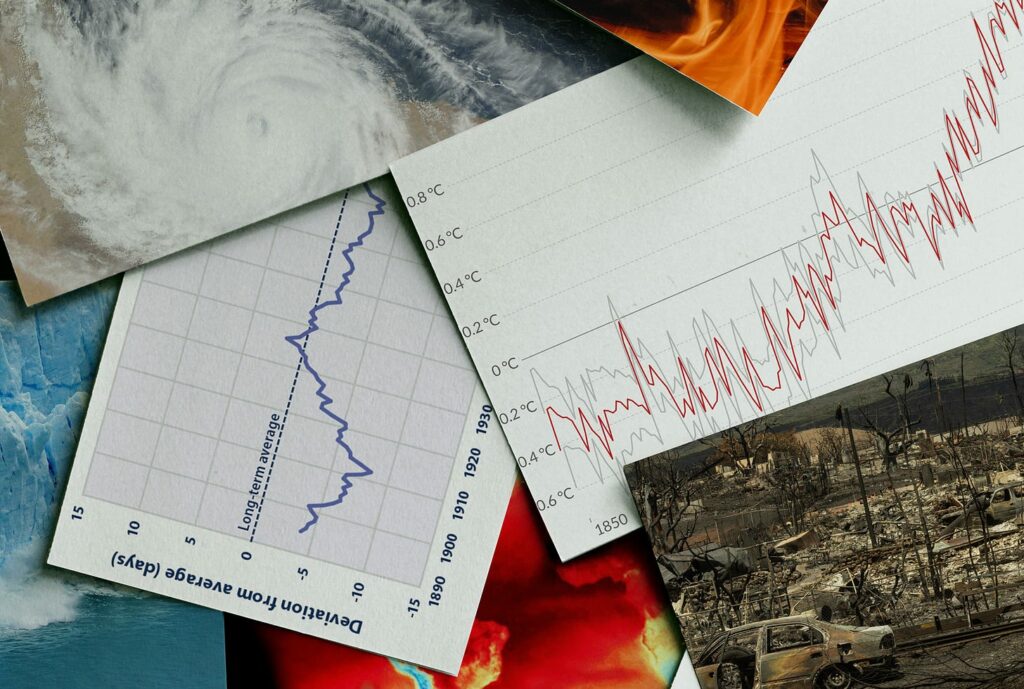As the recent kerfuffle over Patrick T. Brown’s mea culpa in getting published in Nature shows, there is a preferred narrative that must be adhered to if you don’t want something nasty to happen to your climate-science career. But truth has a way of shining forth through the cracks. For instance in a CNN piece about the clouds on Neptune. And Neptune is safe from Earthly kerfuffles, right? Well, no. You see, “Thanks to an analysis of nearly three decades’ worth of Neptune observations captured by three space telescopes, scientists have determined the ice giant’s diminished clouds may indicate that shifts in their abundance are in sync with the solar cycle, according to a recent study published in the journal Icarus.” But clouds have a huge influence on temperature here on Earth, one that climate models handle exceptionally badly. And if Mr. Sun is affecting them on Neptune, which is way the heck and gone from old Sol, some 2.8 billion miles or 30 “astronomical units”, where it gets just 0.1% of the sunlight we do, which isn’t surprising since it takes light four hours to get there from the sun, guess what’s happening here.
The story is an interesting example of what happens when you do your science scientifically. As CNN says, “Astronomers have been puzzling over a mystery on Neptune, and now they think they have unlocked its secret.”
Ah. So not settled? No. It seems clear that:
“The ice giant’s ghostly, cirrus-like clouds largely disappeared four years ago. Today, just a patch hovers over the planet’s south pole.”
The question is why. And scientists, real ones, love a mystery:
“The findings are ‘extremely exciting and unexpected, especially since Neptune’s previous period of low cloud activity was not nearly as dramatic and prolonged,’ [study lead author Erandi] Chavez added.”
In some sense we all know it except when climate is involved. Thus the New York Times recently emailed us “Opinion Today: Is everything we know about the origin of the universe wrong?” (And it seems that way since this absurd business of “dark matter” now supposedly accounts for 96% of everything. Right. You have a theory that explains four percent of stuff perfectly if we just assume there’s 24 times as much other stuff nobody can see or feel.) And Ariel Kaminer, the Times’ “Deputy Op-Ed Editor for Ideas & Investigations” writes:
“I asked the two scientists how it felt to peer into that abyss. I expected them to say they were terrified, since that’s how I would feel if the possibility arose that everything I thought I knew might be wrong. But my guess couldn’t have been farther from the mark. ‘It’s wonderful,’ [theoretical physicst Marcelo] Gleiser exclaimed, ‘because if it’s true, we’re going to be witnessing a revolution in thinking about how the universe works.’”
Offer them a revolution in thinking about climate works and watch them all shuffle away from you there in the lab. Despite which one candidate regarding clouds that shakes its gory locks at the guardians of climate orthodoxy is the Svensmark hypothesis that when the sun is active, a stronger solar wind screens out cosmic rays that seed clouds.
Or not, because that mechanism means a more active sun correlates with fewer clouds on Earth. Whereas this paper finds that more sun means more clouds on Neptune, and their theory is that more UV is behind it. The press release (yeah, it’s a competitive world of scientific publication these days) explains that:
“The changes in Neptune’s brightness caused by the Sun appear to go up and down relatively in sync with the coming and going of clouds on the planet. However there is a two-year time lag between the peak of the solar cycle and the abundance of clouds seen on Neptune. The chemical changes are caused by photochemistry, which happens high in Neptune’s upper atmosphere and takes time to form clouds.
As usual more research is needed, and more grants to the people calling for it. But they watch their step:
“The combined data from Hubble, the Webb Space Telescope, Keck Observatory, and the Lick Observatory will enable further investigations into the physics and chemistry that lead to Neptune’s dynamic appearance, which in turn may help deepen astronomers’ understanding not only of Neptune, but also of exoplanets, since many of the planets beyond our solar system are thought to have Neptune-like qualities.”
Exoplanets. An even safer distance away. But what if cycles in solar activity also affect clouds on Earth, in the other direction, as considerable empirical evidence suggests they do on various time scales. Wouldn’t that be keen? A revolution in thinking about climate, with CO2 dethroned and…
Hey. Where’d everybody go?



Neptune is "safe". Nothing to see there. At least nothing that matters. Or makes money.
Yup.That last sentence is telling.Sun cycles replacing the CO2 theory of climate change causes is like Galileo trying to convince the Vatican 400 years ago that the earth revolves around the sun,and not vice versa.